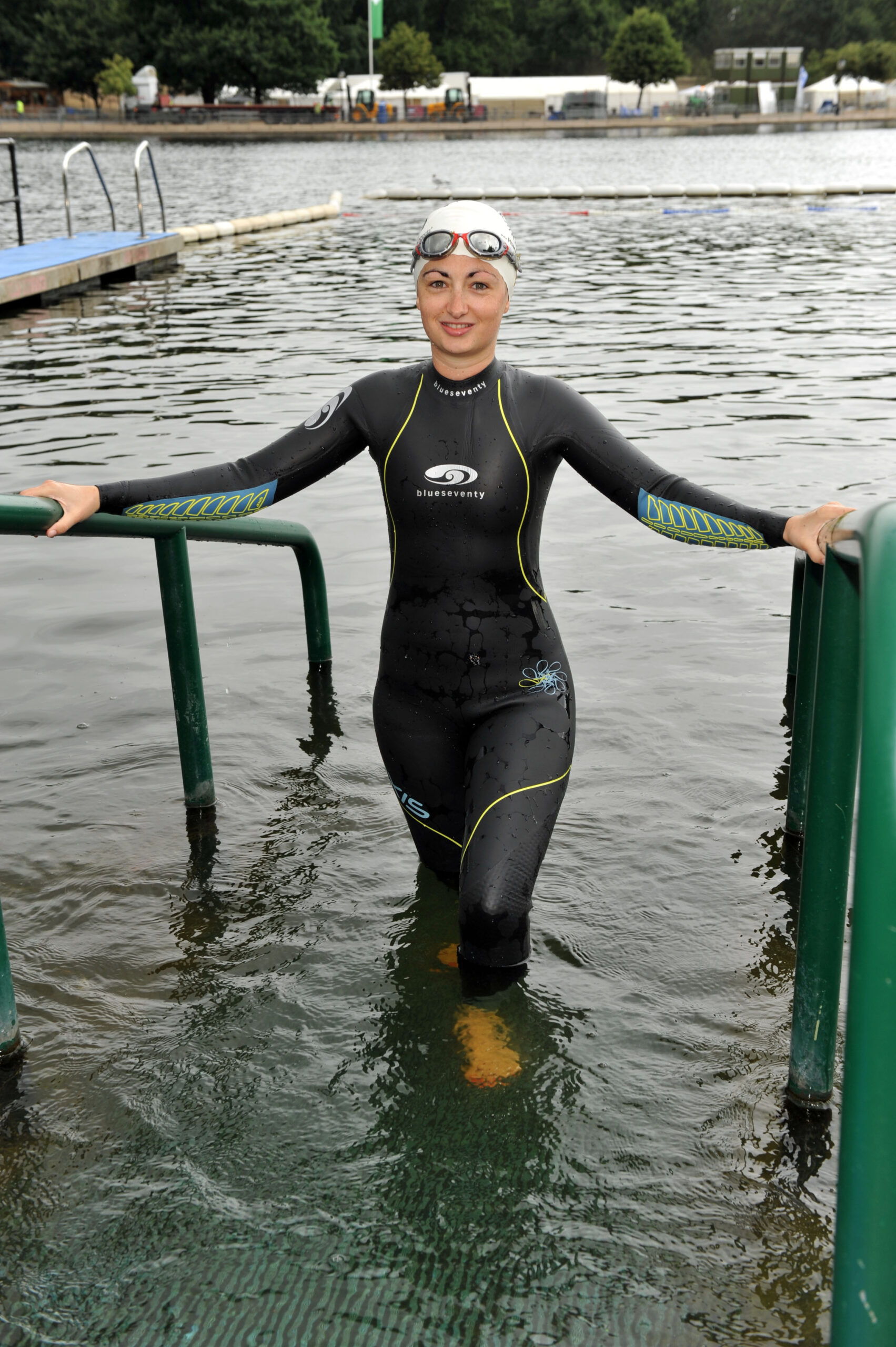Sebastian Kienle is a man in demand. When we reach out to set up this interview, his management – 11-time Ironman winner Ronnie Schildknecht, no less – asks us to email our questions so that “Sebi can answer them via voicemail”.
It’s not ideal for putting together a cover feature, but, really, who are we to argue with a triathlete who’s both respected and feared in equal measure?
A man who’s been competing in triathlon since the age of 12.
An überbiker whose performance at the 2012 Ironman 70.3 World Championship is considered one of the greatest race-day wins in triathlon history.
Who would go on to win the Ironman world title two years later in similar fashion and finish on the Kona podium four times in total.
So yes, we’ll cut Kienle some much-deserved slack as he continues on his farewell tour.
A tour which started at Challenge Wanaka Half in February (3rd), moved onto Ironman New Zealand in March (4th) and will take in Challenge Roth in June (his first-ever and now his last long-distance race), Norseman in August and the brand new Challenge Samarkand (Uzbekistan) in September, before the 38-year-old father of one finally calls time on his illustrious career.
Notably, the two-time 70.3 world champion has already said goodbye to Kona, having raced his last event there as a pro in 2022. His ninth appearance on the Big Island saw him place sixth in under 8hrs.
As Kienle told us after that iconic race, “It was a really good race for me but it shows how deep the field is and the huge talent that is coming up. It’s time to hand over to the next generation.”
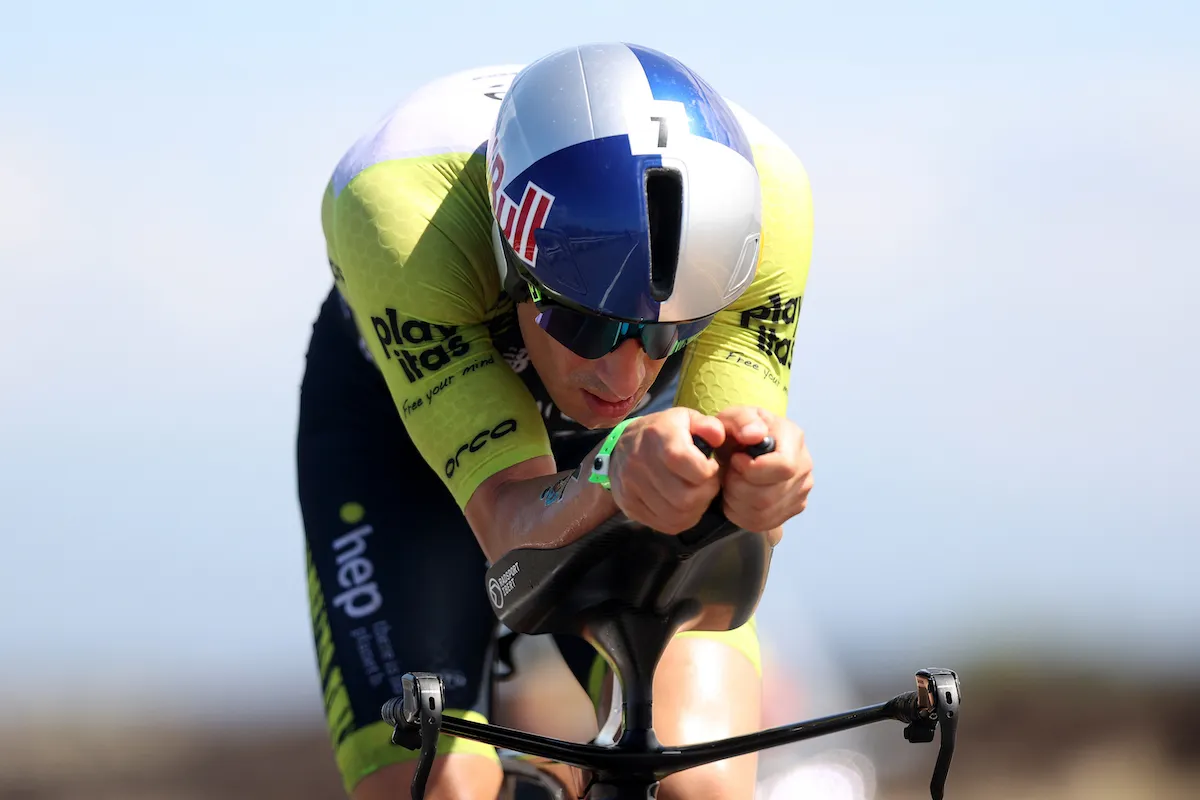
220: What made you decide to retire at this point in your racing career?
Sebastian Kienle: Ultimately it got mentally very draining not being able to fight with the guys on race day because of different injuries. And I just couldn’t dial back on my expectations. I always had this idea to end my career with this one last hurrah year.
I knew that I had to do it now, to really enjoy it.
220: Have you spoken to any other retired pro triathletes for advice on ‘what to do next’?
SK: Yes, and the advice I heard the most was ‘don’t retire, normal life sucks!’ No, to be honest I haven’t talked too much with other guys. It’s more a topic I talk about with my family. But I’m not afraid, I actually look forward to the opportunities.
220: Have you thought about what it’s going to be like not having a racing goal to focus on for the year ahead?
SK: I think this is a very important question. So the idea is to still do some gravel races to have a little bit of a soft landing. But I think it’s better to slowly shift away [from] that [racing] mindset.
And there’s also my little son now [Nino Ka’imi Kienle, born on 4 July 2021], I don’t think I could have picked a better time to be at home more.
220: How do you intend to spend your retirement?
SK: Being active, with my family, doing something that I like and that is useful. Yes, I think I did something useful as an athlete; if I just inspired a handful of other people to pick up sports then it was useful. But if you sit on a trainer for four hours sometimes it’s frustrating to not directly see the result of your work.
I think my son would be happy if I became a firefighter. I think I’d also be happy as a carpenter. But, of course, I will stay connected with the sport. We have a coaching company in Germany, KickAss Sports.
220: What’s been the highlight race of your career and why?
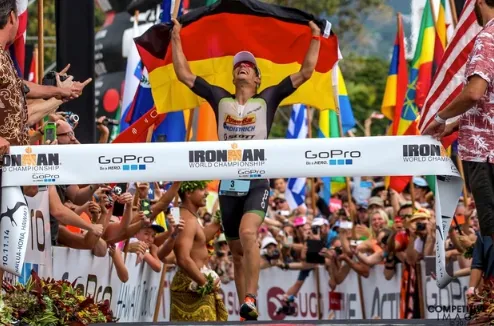
SK: Obviously it’s Kona. Kona changes everything for you as an athlete. I’ve been in the top 10 there eight times and four times on the podium. But for me, personally, as an athlete it probably was my first 70.3 world title [2012] or my first podium at the German duathlon championships way back in 2003.
220: What’s the one race you wished you’d won but didn’t?
SK: I would’ve loved to have won another Kona title. I think in 2016 everything was set up perfectly, but I missed it [he finished second]. That hurt a lot. And 70.3 [Worlds] in St George. I loved the race and was never able to win it.
220: What’s been your favourite place to train and why?
SK: I don’t think that I have this one single place. I love a lot of places, that was also the reason why I loved to go on camps. Every place has something good or special.
Tucson has the swim squad. Playitas [Fuerteventura] makes training hard very simple and the island makes you tough. Fuschlsee in Austria has this beautiful lake and a great facility with the Red Bull performance centre. St. Moritz has probably the most beautiful running at altitude.
Livigno, Italy, has the best climbs and great food. Maui and Kona are the best preparation for the big dance on the Big Island. Girona probably has a great mix of a lot of the things that I like. But, there’s no place like home.
220: And what’s been your favourite place to race and why?
SK: I guess I can tell you after this year, but New Zealand was pretty nice. But I’ve always loved to race in Maui at the Xterra world champs.
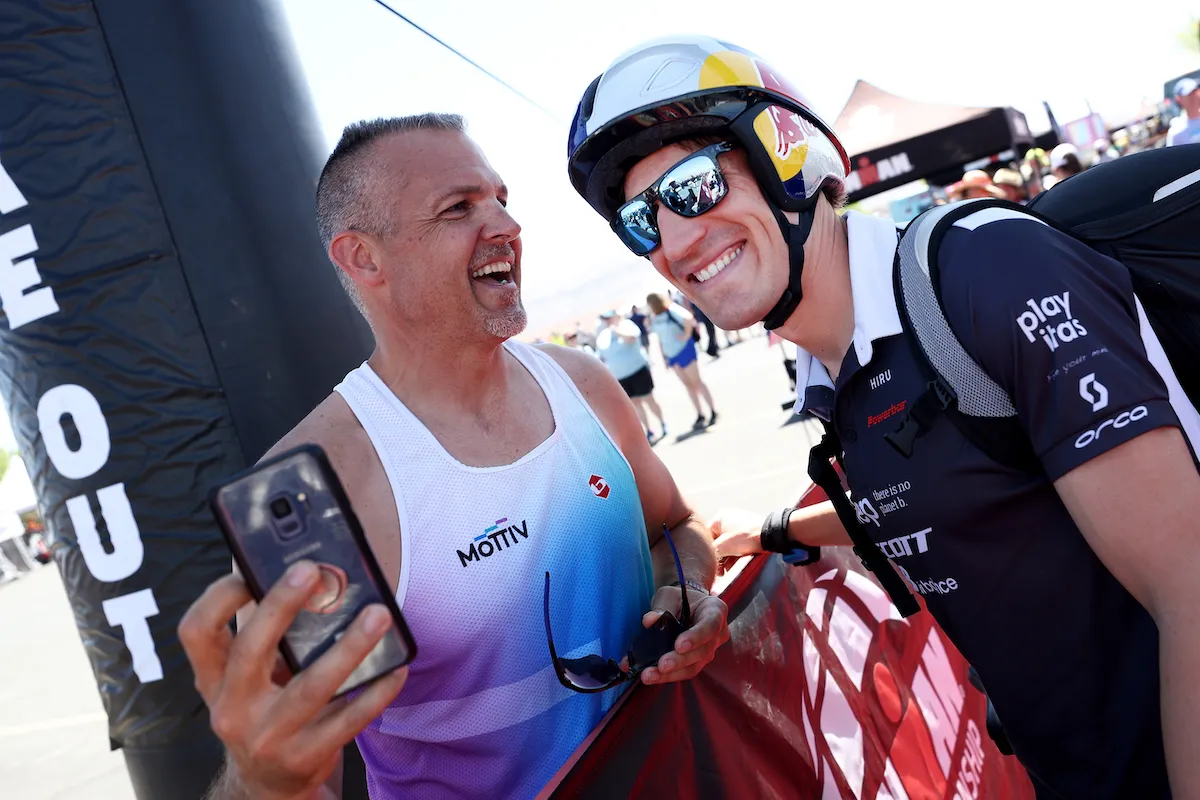
220: Are you pleased with how your racing career panned out?
SK: Mostly yes, I think I won the most important races in non-drafting triathlon. But I would’ve also liked to do some things differently.
220: If you could have pinched aspects of other triathletes’ abilities, what would you choose and why?
SK: For sure I would’ve loved to swim like Josh Amberger. It always shocked me how he makes it look so easy to swim so fast, especially in open water.
220: You joined the Bahrain Endurance team in 2015. Any regrets about that decision given the controversy that still surrounds the naming of the team and the human rights abuse accusations against its founder, Shaikh Nasser Bin Hamad Al Khalifa?
SK: Let’s put it this way, I have no regrets about the decision I made at the end of 2015 [to leave the team]. I think you should rather ask the athletes that sign new contracts or renew theirs.
220: What do you wish you’d known earlier on in your career?
SK: That my career would last so long. If you know that you have 10-15 years you’d probably invest more into long-term improvements. Even if that means sacrificing short-term success.
220: What are the three key things that you’ve learnt from the sport that you can take with you into ‘civilian life’?
SK: If you love what you do you will do it good. Building a team leverages your own strength and talent, if you elevate those around you they elevate you. Balance the highs and lows, don’t freak out when you’re on top, nor when you’re on the bottom.
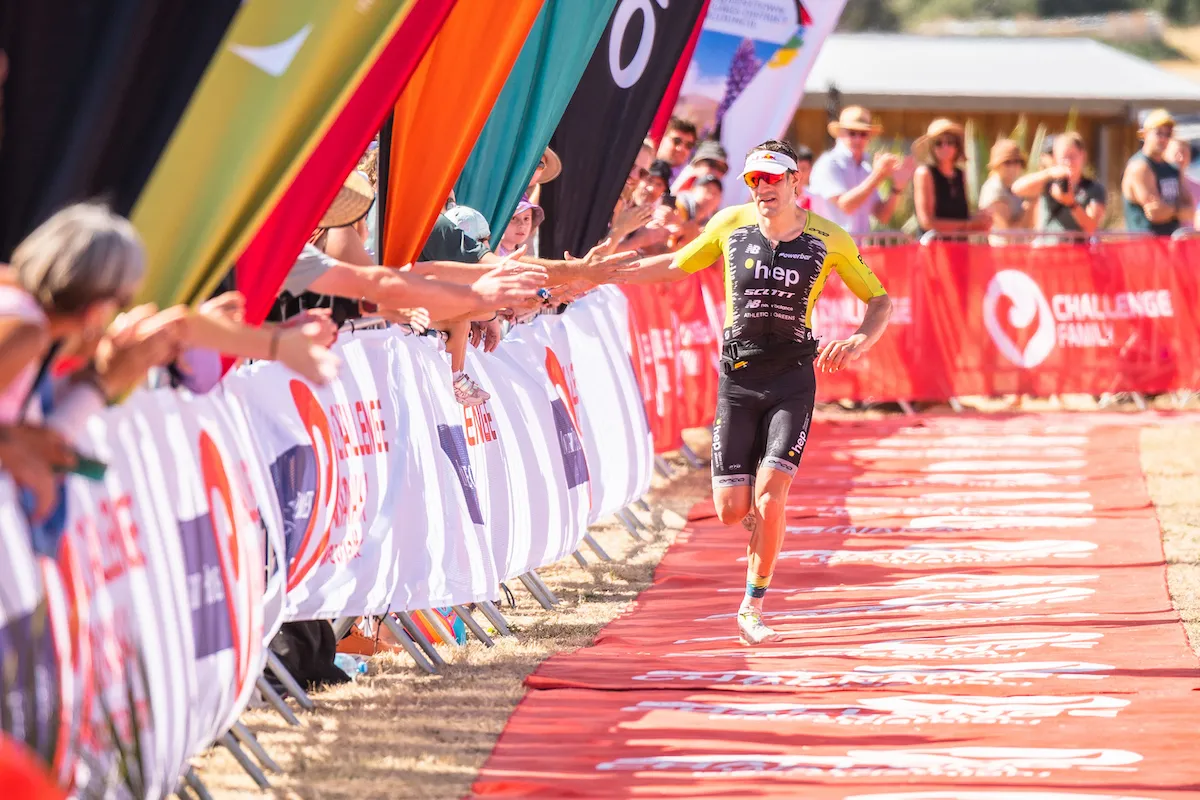
220: What do you make of the hectic pro race calendar in 2023?
SK: I think it’s good to have more choices again after the Covid years. But I’ve always been a fan of the WTCS model. The PTO is establishing something like that.
And I think we would need the same with Ironman. A maximum of five long-distance races for elites per year, but then with good live TV coverage, and a total of $1 million prize money per race so that you always have a super-strong, deep field.
The only way to grow the professional part of the sport is to tell a story over a whole year. Spectators need to see exiting racing with the same characters.
220: What are your thoughts on the PTO? Do you think they’ve done enough to improve professional racing for triathletes?
SK: It’s the biggest improvement for professional athletes in the history of our sport. Not everything is perfect, of course, but sometimes I have the feeling that the community always sees everything negative no matter what the organisation.
Unfortunately a lot of athletes don’t seem to see it as their representation. They like to take the money but not really actively supporting the organisation.
220: How would you like to see the sport progress over the next 5-10 years?
SK: The most important thing for me would be that all players agree to make decisions based on the goal to grow the sport. I hope that the professionals really unite, not to just yell ‘more prize money’ but to also deliver more value to races and organisers.
220: Which pro athletes should we be keeping an eye on for future success?
SK: There’s a lot of talent in short-course racing which at some point will switch over [to] long course.
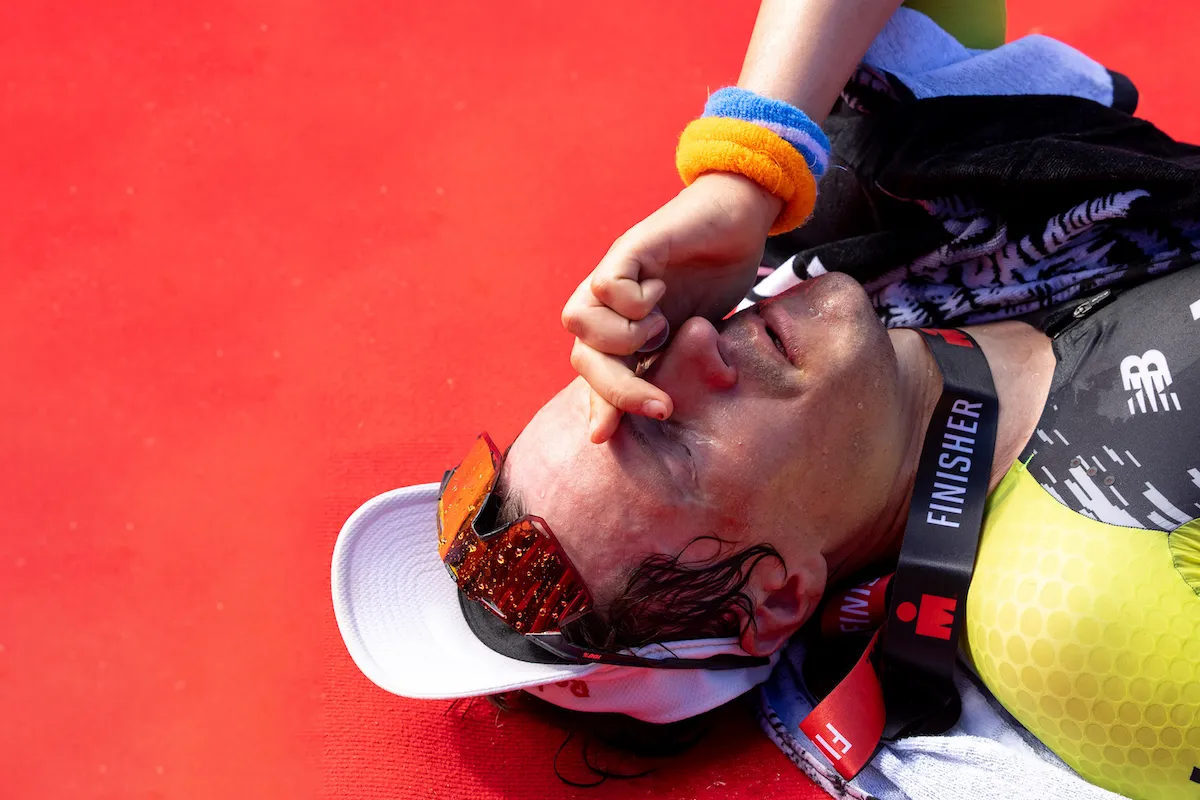
220: How has life, and your outlook on life, changed since having your son?
SK: Just on this question alone I can write a book. So the short answer is, everything.
220: Would you encourage him to pursue a career in professional sport?
SK: I will encourage him to find something he loves. And then I would absolutely love to support him with that if he wants me to support him.
220: Who do you consider to be the greatest male and female triathletes, and why?
SK: Jan [Frodeno]: Olympic champ, 70.3 world champ, Kona champ. And two decades on the absolute top of the sport. [Kristian] Blummenfelt is close but not there yet in my honest opinion.
On the women side it’s Flora [Duffy]: Olympic champ, Xterra champ, World [Triathlon] champ and not done yet.
I think also Daniela [Ryf] because of her five Ironman world titles but also the two decades on the top of her game. And Lucy [Charles-Barclay] is also pretty impressive. She’s one of the few who are able to jump between short and long course and be competitive in both.
220: What do you hope your legacy in the sport will be?
SK: I never really thought about that. I think if you do things right on a daily basis that is how you leave a legacy. So I would like to do things right. Be an honest, fair racer who is able to give respect to those who deserve it and is never shy to speak out when something is going in the wrong direction.
Just as I learned [to do] from the guys I looked up to when I started the sport.
You can follow Kienle’s final year as a pro on his YouTube channel, through his ‘Discontinued’ documentary.
Top image credit: Graeme Murray/Ironman
